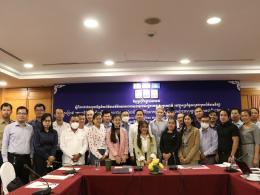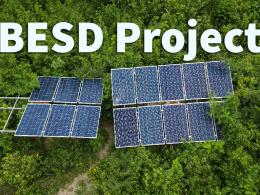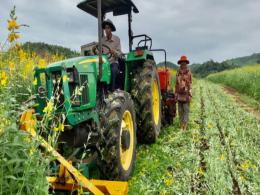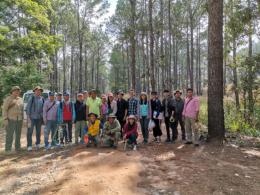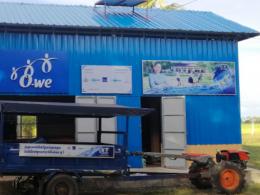Study on Impact of Heat Stress to Human Productivity and Economic in Cambodia
Background
Human productivity plays an important role in economic activity; therefore, any productivity drops will hinder the country’s poverty reduction strategy and other sustainable development goals. Human productivity can be affected by many parameters such as experiences, skill, management, duration of continuous work, environmental conditions, etc. Uncomfortable working conditions due to the surrounding environment including air temperature, humidity and velocity, solar radiation, clothing, and the body metabolic heat are the factors causing “Heat Stress” on humans. In addition to heat- related illnesses, heat stress has been found accountable for an increase in workplace accidents, and a decrease in worker productivity. Global temperature rise due to climate change will make the phenomenon of “heat stress” more common and result in the loss of the total number of working hours. Heat stress has a negative impact on many sectors, including construction, garment, agriculture, education, etc. Even though the risk is high for those working outdoor under direct sunlight, those working indoor without a proper ventilation system and temperature level regulation, are also at risk.
To improve productivity and prevent productivity losses, expected results from this research will be presented to the ministries for policy planning, and proposed solution to make the surrounding environment cooler.
Overall Objective
Prevent economic loss for policy planning and increase human resources in this research field in Cambodia
Specific Objectives
1. Build human resources in the heat stress field;
2. Investigate the impacts of heat stress on productivity;
3. Develop economic model on impact of heat stress; and
4. Build evidence on the impacts of heat stress on productivity in three selected sectors including the construction, garment, and education sectors.
Approach
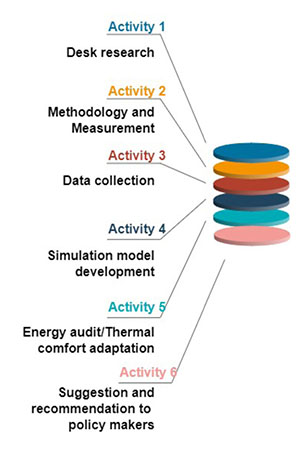
The innovation project is required many multidisciplinary to carry out the research results; thus, integrate multidisciplinary research background including heat and transfer, thermal energy, energy efficiency, heat stress, Psychology, economy, and climate change is one of the methods to reach the expected output. Moreover, including Ph.D. candidates for knowledge improvement and sustainability of human resources are adopted. Regarding the different expertise, each research team has specific leading tasks based on their research background.
According to the nature of this research, literature study and secondary data collection are at the beginning of research activities; after that, we will adapt and find out the method for the data measurement following by data collection; at the same time, the development of economic models will be starting. Furthermore, obtain a better working/studying condition and energy efficiency in the factory will also be studied. Finally, the research results will be the evidence and suggestion of the policymakers and related stakeholders for productivity improvement, better income, lower risk at the workplace, and Cambodia’s economic sustainability.
Outputs and Key Activities
| Result | Key Activities |
|---|---|
|
|
Knowledge Products
• Heat stress productivity and economic forecasting • Work rest schedule for construction workers, garment workers, and pupils
| Timeframe | Total Budget | Partners | Location |
|---|---|---|---|
| August 2020 –July 2023 | USD 424,200 (From CCCA US$149,950) |
The Hong Kong Polytechnic University The National University of Singapore The Health and Environment International Trust |
Phnom Penh |


